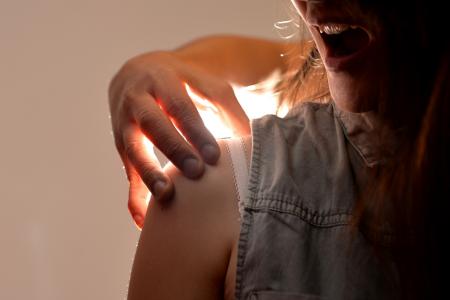20% spike in reported molest cases this year
One reason for rise could be victims' increased confidence in reporting such cases, says Aware
Eight men, aged between 25 and 57, will be charged in court today for separate cases of outrage of modesty.
Of the cases, which happened between January and July, five were at public entertainment outlets or on public transport.
The eight cases form part of a growing number of outrage of modesty cases in Singapore, the police said yesterday.
As of last month, there were 1,168 such reported cases this year - a 20 per cent spike compared with the same period last year.
In particular, cases reported on public transport went up by 49 per cent. Those reported at public entertainment outlets rose by 24.6 per cent.
These figures do not merely reflect an increase in the crime alone, said Ms Jolene Tan, the head of advocacy and research at the Association of Women for Action and Research.
For a "vastly under-reported" offence like sexual assault, the uptick may also indicate that more victims feel more confident to report their experiences, she told The New Paper.
One of them, Lisa (not her real name), 30, made a police report after she was groped at a bazaar early this year.
Not wanting the alleged culprit to think he could prey on someone and get away with it, she pressed on with the report despite being told there was no closed-circuit television footage evidence, only her words against his. The case is pending.
National University of Singapore (NUS) sociologist Tan Ern Ser added that the rise could also be due to a bigger population, or the efficacy of CCTV cameras.
To deter such crimes, the police said they have been working with operators of public entertainment outlets on additional security measures, such as the installation of CCTV cameras.
Operators are also required to prevent overcrowding and ensure sufficient lighting in their premises.
Ms Tan pointed out that such nightspots have a responsibility to ensure their premises are safe for women by training security and bar staff to step in or alert management should they witness an assault.
She said: "Perpetrators in these instances are not always strangers either, and many survivors have reported experiences where their friends or acquaintances exploit the situation when the survivor is too intoxicated to consent."
Other than patrols in public transport areas, the police have also spread crime prevention advice to commuters through posters, videos and roadshows.
These send a clear message that such behaviour is not tolerated, and empower victims and bystanders to speak up, said Ms Tan.
She also pointed out that given that sexual assault crimes such as molest are about power and control, some perpetrators may believe they can get away with an offence in a crowded, public environment.
"As such, it is important to encourage bystanders and friends who are present to recognise sexual violence when it happens, alert a staff member, and actively support victims, especially if they are caught unaware, or are processing the shock or fear from the situation," she said.
NUS' Associate Professor Tan added: "Apart from surveillance cameras and people stepping in to defend victims and apprehend perpetrators, we should educate people about respecting others in all sense of the word, about good character, and the consequences of being a convicted criminal on one's future, family and personal reputation.
"At the same time, we must reduce the opportunity for people who take advantage of crowded places and dimly lighted streets to commit molest."
Victims who need help or emotional support can call the Sexual Assault Care Centre at 6779-0282 (Monday to Friday, 10am to midnight) or visit www.sacc.sg
Get The New Paper on your phone with the free TNP app. Download from the Apple App Store or Google Play Store now



